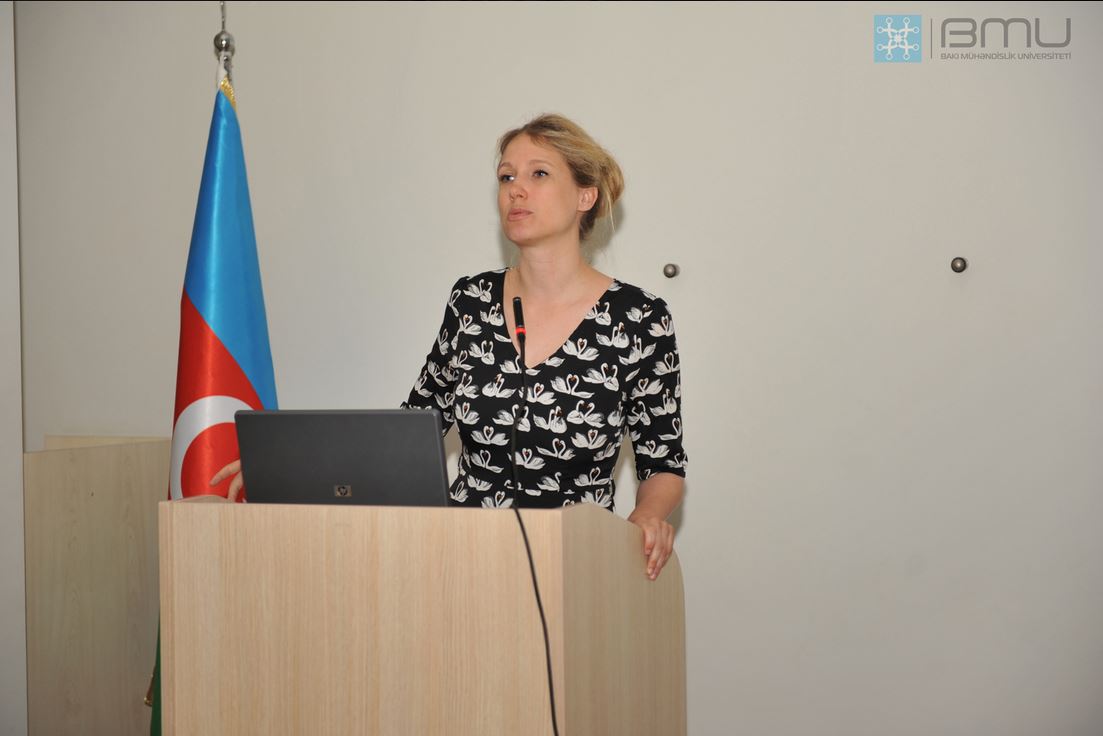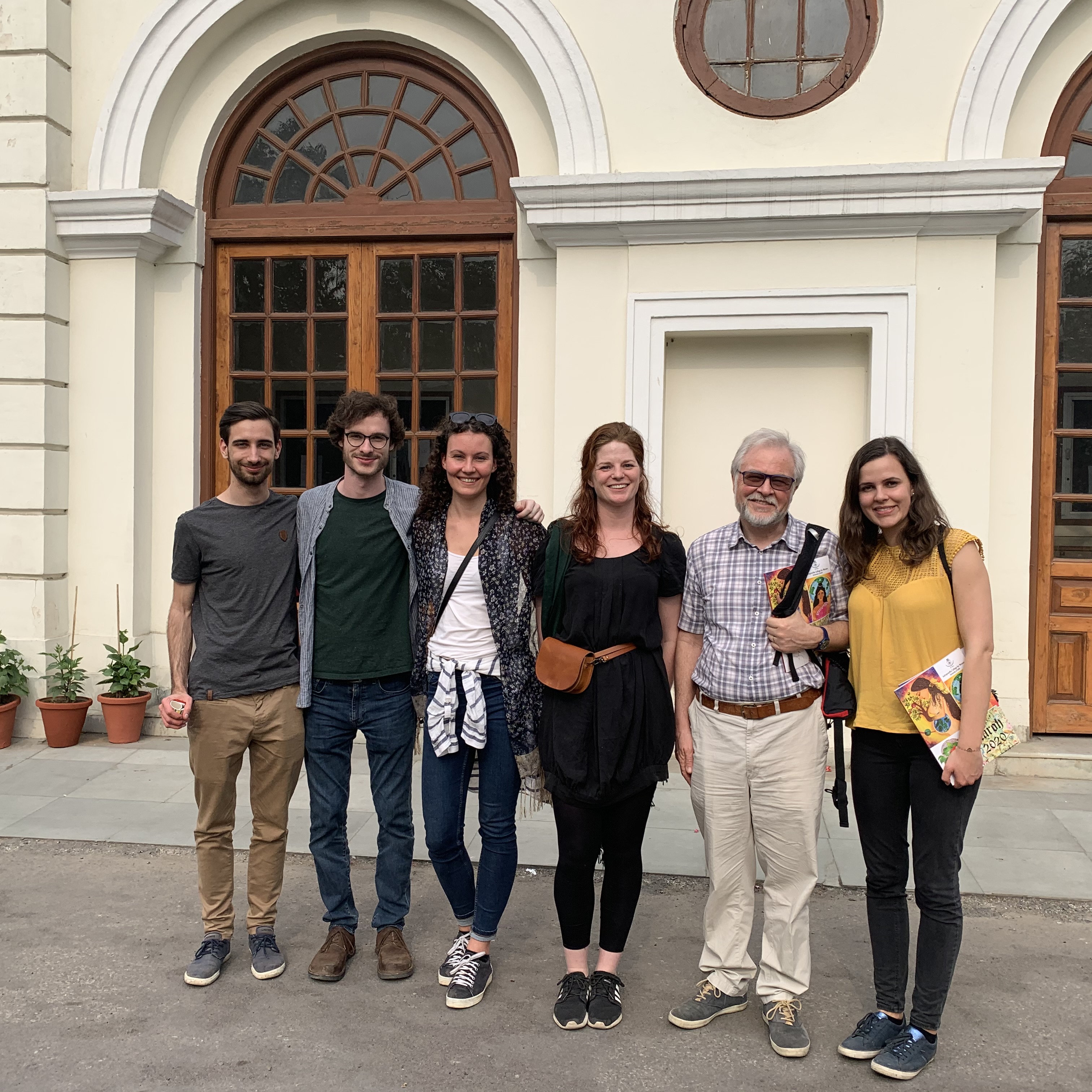Migration ist auf globaler Ebene eines der drängendsten und komplexesten Themen der Gegenwart. Das UNI-ETC trug dieser Tatsache unter anderem mit einer seit 2012 bestehenden, tragfähigen und fruchtbaren institutionellen Kooperation mit Universitäten des Südkaukasus im Bereich Migrationsstudien Rechnung. Im Juli endetet nun das ERASMUS+-Bildungsprojekt „Promoting Migration Studies in Higher Education. PROMIG“. Das Projekt hatte ein Projektvolumen von knapp einer Million Euro und nach einmaliger Laufzeitverlängerung schlussendlich eine Laufzeit von 3,5 Jahren. Das Erasmus+ Bildungsprojekt PROMIG startete 2016 und baute auf dem 2015 erfolgreich abgeschlossenen Projekt UNIMIG auf.
Durch überregionale und interdisziplinäre Zusammenarbeit, die Bündelung vielfältiger Expertisen und die Nutzung unterschiedlicher thematischer und regionaler Schwerpunkte konnte PROMIG innovative Sichtweisen auf die Chancen und Herausforderungen von Migration entwickeln und neben der Stärkung von Forschung und Lehre zum Thema Migration auch die Vernetzung und Kooperation der unter UNIMIG etablierten Migrationskompetenzzentren in Armenien (AR), Aserbaidschan (AZ) und Georgien (GE) festigen.
In den Bereichen des Capacity Building und des Wissenstransfers wurden Lehrende der Europäischen Partneruniversitäten (Universität Oldenburg (GER), Universität Alicante (ESP) und Universität Graz (AT)) eingeladen, an den beteiligten Partnerinstitutionen in AR, AZ und GE zu unterrichten. So hielten Forscher und Forscherinnen des UNI-ETC etwa Lehrveranstaltungen zu menschenrechtlichen Aspekten von Migration, Kindern auf der Flucht und zum Prinzip des Non-Refoulement in den einschlägigen Masterprogrammen der beteiligten Universitäten ab.
In Sommer- bzw. Winterschulen in Spanien, Georgien, Deutschland und Indien, die das UNI-ETC federführend konzeptualisierte, konnten Studierende aller Partnerinstitutionen ihre Kenntnisse zu Migration vertiefen. Diese Sommer- bzw. Winterschulen dienten auch der überregionalen Vernetzung der Studierenden und dem Erfahrungsaustausch. Als dritte Komponente der Kapazitätsentwicklung wurden Trainings für das Personal der bereits bestehenden universitären Migrationskompetenzzentren angeboten.
Neben den ProjektpartnerInnen des kaukasischen Raums wurde PROMIG auch um Partnerinstitutionen in Afghanistan erweitert. Hier sollen insbesondere die Erfahrungen aus UNIMIG hinsichtlich der Etablierung von Migrationskompetenzzentren und Migrationsstudienprogrammen genutzt und an die afghanischen PartnerInnen weitergegeben werden. Die Einbindung der afghanischen KollegInnen stellte das Konsortium vor konkrete migrationspolitische Hindernisse, da es den afghanischen Projektpartnerinnen nicht möglich war, Visa für die Teilnahme an Projektaktivitäten in Europa oder im Südkaukasus zu erhalten. Dieser Umstand führt unter anderem zur Abhaltung von Trainings für afghanische UniversitätsmitarbeiterInnen auf den Malediven und in Indien, da ihnen dort eine Einreise möglich war. So konnte dank des unermüdlichen Einsatzes der Projektkoordination an der georgischen Tbilisi State University PROMIG zu einem erfolgreichen Abschluss gebracht werden.
________________________________________________
Migration is one of today’s most pressing and complex issues globally. The UNI-ETC took account for this through a viable and fruitful institutional cooperation with universities in the South Caucasus in the area of migration studies that has existed since 2012. The ERASMUS+ educational project “Promoting Migration Studies in Higher Education”- PROMIG was successfully completed in July. The project had a project volume of about one million euros and lasted for a period of 3.5 years. The Erasmus + education project PROMIG started in 2016 and built on the UNIMIG project, which was successfully completed in 2015.
Through supra-regional and interdisciplinary cooperation, the pooling of different expertise and the application of different thematic and regional perspectives, PROMIG was able to develop innovative perspectives on the opportunities and challenges of migration, to strengthen research and teaching on the subject of migration, and to foster the networking and cooperation amongst migration competence centers in Armenia (AR), Azerbaijan (AZ) and Georgia (GE).
In the area of capacity building and knowledge transfer, lecturers from the European partner universities (University of Oldenburg (GER), University of Alicante (ESP) and University of Graz (AT)) were invited to teach at the participating partner institutions in AR, AZ and GE. Researchers of the UNI-ETC held courses on, among other things, human rights aspects of migration, children on the move and the principle of non-refoulement in the relevant master programs of the involved universities.
The UNI-ETC led the conceptualization of PROMIG summer schools that took place in Spain, Georgia, Germany and India. Students from all partner institutions were able to deepen their knowledge of migration. The summer schools were also used to network students across regions and to exchange experiences. As a third component of capacity development, training courses were offered for the staff of the existing university migration competence centers.
In addition to the project partners from the Caucasus region, PROMIG also expanded to include partner institutions from Afghanistan. Here, in particular, the experiences from UNIMIG with regard to the establishment of migration competence centers and migration study programs were used and passed on. The involvement of Afghan partners presented the project partners with migration related obstacles, as the Afghan colleagues were not able to obtain visas for participating in project activities in Europe or in the South Caucasus. Among other things, this led to organizing the training courses for Afghan university employees in the Maldives and in India as they legally allowed to enter these states. Thanks to the tireless efforts of the project coordination at the Georgian Tbilisi State University, PROMIG was brought to a successful conclusion.

